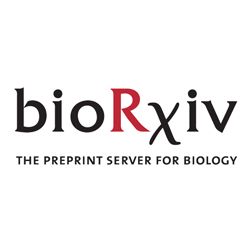
My lab studies molecular and circuit mechanisms of neurodegeneration.

Great work by Miguel Padilha and several wonderful collaborators including thevilchezlab.bsky.social




The culprit? An overlooked aging factor — EPS8 and RAC signaling. #Aging #Longevity #Proteostasis #ALSResearch
🧵
www.nature.com/articles/s43...


🗓️ Deadline: November 3, 2025.
ℹ️ More info: www.ageing-grad-school.de
📣 Spread the news!
🗓️ Deadline: November 3, 2025.
ℹ️ More info: www.ageing-grad-school.de
📣 Spread the news!
The project explores inter-tissue regulation using advanced proteomics approaches.
Collaborative & interdisciplinary environment. More details & application here:
jobs-uk-koeln.onlyfy.jobs/job/pktg6ivj...

The project explores inter-tissue regulation using advanced proteomics approaches.
Collaborative & interdisciplinary environment. More details & application here:
jobs-uk-koeln.onlyfy.jobs/job/pktg6ivj...

Thanks to @thevilchezlab.bsky.social for all the hard work on putting together this consortium, and to the #DFG for funding our research!
Thanks to @thevilchezlab.bsky.social for all the hard work on putting together this consortium, and to the #DFG for funding our research!
Great work by Miguel Padilha and several wonderful collaborators including thevilchezlab.bsky.social

Great work by Miguel Padilha and several wonderful collaborators including thevilchezlab.bsky.social

📢 We are looking for a PhD student interested in studying the role of TDP-43 in genome stability and the DNA damage response!
Apply via this fantastic PhD Programme until April 3 👇
Ready to advance your scientific career? If you're passionate about #RNAbiology, #Bioinformatics, or #Immunology, apply to our open calls and join our global community of over 200 #PhD students! 🌍
www.imb.de/phd


📢 We are looking for a PhD student interested in studying the role of TDP-43 in genome stability and the DNA damage response!
Apply via this fantastic PhD Programme until April 3 👇

Check out our new collaborative study with @takakikomiyama.bsky.social, spearheaded by Sonja Blumenstock, now out as a preprint.
www.biorxiv.org/content/10.1...

Check out our new collaborative study with @takakikomiyama.bsky.social, spearheaded by Sonja Blumenstock, now out as a preprint.
www.biorxiv.org/content/10.1...

